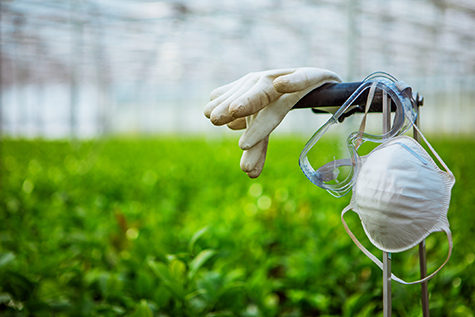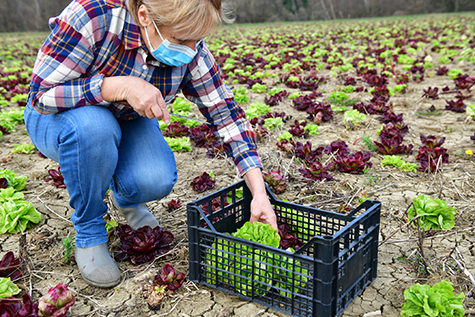EWG Statement on the Covid-19 Food Protection Program

Last week, the U.S. Department of Agriculture announced a $19 billion COVID-19 farm and food relief initiative, including $16 billion in direct payments to farmers. These new payments come on top of at least $14 billion in payments made to offset the effects of the Trump administration’s trade war with China and more than $15 billion in ongoing, annual taxpayer-funded farm subsidies.
“This rule will pour gasoline on a raging fire in farm country,” said Scott Faber, senior vice president for government affairs at EWG. “Instead of helping small farmers on the verge of extinction, Secretary Perdue’s decision to increase payment limits for corporations to $750,000 will accelerate the decline of the family farm. When Secretary Perdue recently warned farmers to get big or get out, no one could have imagined he would use a pandemic to implement his vision for American agriculture. Even worse, none of these funds must be used to help protect food and farm workers, who are taking incredible risks to keep us fed.”
Through FOIA requests, EWG has learned that previous bailout funding has flowed to the largest, most successful farms. The top 1 percent of Market Facilitation Program payment recipients collected 14 percent of all MFP funds. That means that 6,000 farmers each harvested more than $300,000 in 2018 and 2019. By contrast, the bottom 80 percent of MFP recipients – or about 500,000 farmers – each received above $7,000 in the same time period.
Unlike with anti-hunger or housing assistance programs, millionaires can still receive MFP payments – and other farm subsidies. President Trump’s USDA chose to retain the same meager “means” test that applies to most farm subsidies: Farm couples can receive payments so long as their annual average net income does not exceed $1.8 million.
EWG keeps finding city dwellers on the list of MFP recipients. Even billionaires are cashing in.
“It’s no surprise that the team at USDA – which is filled with former farm lobbyists and farm subsidy recipients – raised the payment limit or retained loopholes that allow distant relations or silent partners to collect subsidies, regardless of whether they live or work on the farm,” said Faber.

